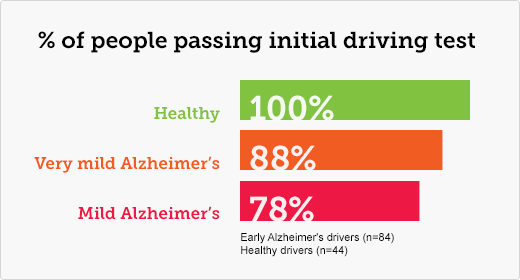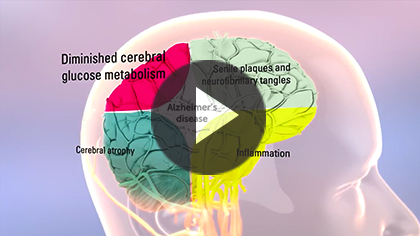Talking to your loved one about giving up driving
Driving can be a sensitive issue
 Whether your loved one was recently diagnosed or he or she was diagnosed a while ago, there’s a good chance you’ve heard a lot about how Alzheimer’s affects a person’s ability to drive. Many people with Alzheimer’s don’t want to give up driving, but your loved one will eventually reach the point where he or she has to.
Whether your loved one was recently diagnosed or he or she was diagnosed a while ago, there’s a good chance you’ve heard a lot about how Alzheimer’s affects a person’s ability to drive. Many people with Alzheimer’s don’t want to give up driving, but your loved one will eventually reach the point where he or she has to.
As your loved one loses his or her ability to drive, it’s important to make sure he or she stays safe. And, as you may have learned by now, keeping your loved one from wanting to drive may be a challenge. Being prepared for when your loved one can no longer drive safely will help make the transition easier when that time comes.
Statistics about Alzheimer’s and driving1-3
People with Alzheimer’s will eventually have to stop driving, but how quickly that happens can depend on several factors. A study by Brown University measured how long people with very mild Alzheimer’s and people with mild Alzheimer’s can continue driving safely. Healthy older people were included in the study as well.

The study also showed that people with very mild Alzheimer’s were able to continue driving safely for 20 months on average. People with mild Alzheimer’s were able to continue driving safely for an average of 11 months. It’s important that you monitor your loved one for signs of unsafe driving, which include confusion about how to operate a car and being involved in even minor accidents. If these signs occur, talk to the doctor. He or she may be able to help determine if your loved one should stop driving. If it is determined that your loved one's driving is becoming dangerous, it's time to talk to him or her about stopping.
Having the driving conversation4
The statistics show that people with mild Alzheimer’s might be able to drive safely for a while, but eventually the time will come to talk to your loved one about no longer driving. Those conversations may be difficult, so it’s important to be as prepared as possible. Here are some tips on what you can say and do:
- Express your concern – Start by telling your loved one how much you care, but communicate that you’re worried that his or her driving is becoming dangerous
- Get backup – Have your loved one’s doctor write a note or prescription saying that your loved one should no longer drive. You can also bring in other family members or respected authority figures to assist you
- Don’t take it personally – Your loved one may initially refuse to stop driving, but it’s not your fault. Alzheimer’s can cause changes in judgment that make it difficult for your loved one to understand that his or her driving is unsafe
- Stay strong – If your loved one doesn’t give in right away, be patient and firm. Explain that you understand your loved one’s feelings but reiterate that not driving is safer for him or her and for others
- Utilize last resorts – If your loved one truly won’t stop driving, take away the keys, disable the car, or remove the car. Just make sure to arrange for safe travel alternatives
A growing concern2
The number of people aged 65 and older with Alzheimer’s is expected to reach 7.7 million by 2030. As this number grows, so will the importance of having the serious conversation with your loved one about driving. That conversation can help to make sure people who have become a danger to themselves and others are no longer on the road. It’s important that you know how to handle this situation when it arises, so you can help your loved one give up driving and make the roads a little bit safer.


